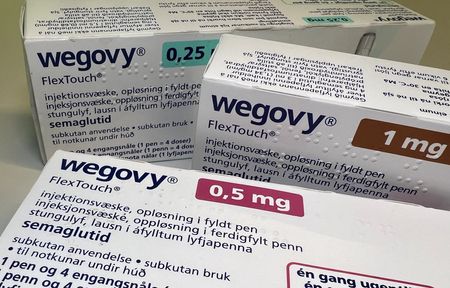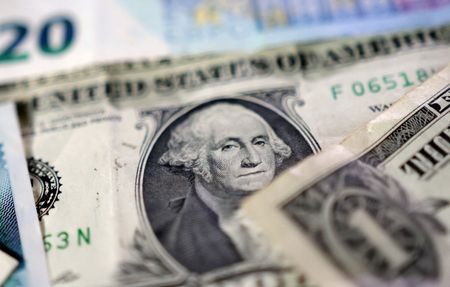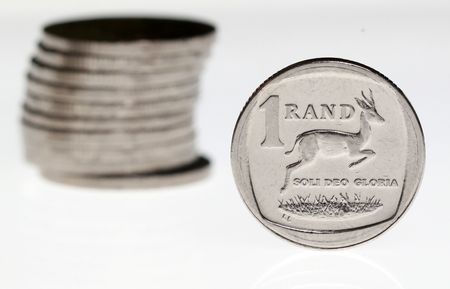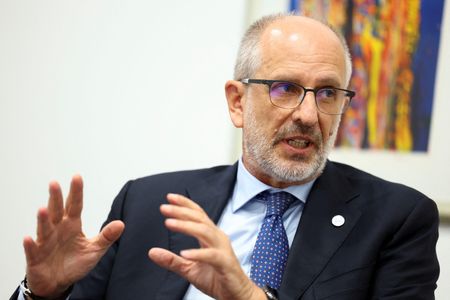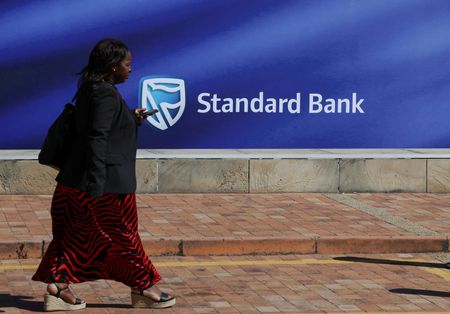By Nqobile Dludla and Siyanda Mthethwa
JOHANNESBURG (Reuters) -Danish drugmaker Novo Nordisk introduced its weight-loss drug Wegovy in South Africa on Thursday, marking its debut in Africa and stepping up competition with Eli Lilly’s Mounjaro which launched in the country eight months ago.
South Africa has the continent’s fourth-highest number of adults with diabetes, according to the International Diabetes Federation, making it a key growth opportunity.
“One in two adults right now in South Africa is living with excess weight or obesity,” Sara Norcross, general manager of Novo Nordisk South Africa, said at the launch event.
“Wegovy is the first and only once-weekly GLP-1 right now that is registered for weight management,” she added, referring to a class of therapies known as GLP-1 receptor agonists that make people feel fuller for longer.
Novo already sells Ozempic in South Africa for diabetes treatment.
Eli Lilly also sells Mounjaro only for the treatment of Type 2 diabetes in South Africa, through Aspen Pharmacare, though some people take the drug for weight loss.
Wegovy, already launched in 35 countries, will be available in five dose strengths in South Africa, and its pricing will be disclosed next week, the company said.
Mounjaro, also a once-weekly injectable treatment, is priced from 3,400 rand ($194) for four vials of its lowest dose, depending on the pharmacy or clinic.
AFRICA EXPANSION
Novo plans to expand Wegovy into other African markets, Norcross told Reuters, as part of a push to boost sales outside the United States.
“I believe it’s going to be launching in Egypt soon, and registrations are being submitted for other countries too,” she said.
The company generates the bulk of its profits from Wegovy sales in the U.S., where it competes with Eli Lilly’s Zepbound and Mounjaro.
More than a billion people have obesity worldwide, according to the World Health Organization, and around 70% of them live in low and middle-income countries, highlighting the potential impact of weight-loss drugs like Wegovy in underserved markets.
In South Africa alone, around 20 million people are overweight or obese, though less than 1% currently receive treatment, Norcross said.
The WHO plans to back the use of weight-loss drugs to treat obesity in adults for the first time, Reuters reported in May, signalling a significant shift in the agency’s stance on tackling the global health challenge.
($1 = 17.5258 rand)
(Reporting by Nqobile Dludla and Siyanda Mthethwa; Editing by Olivia Kumwenda-Mtambo, Bernadette Baum and Christina Fincher)

